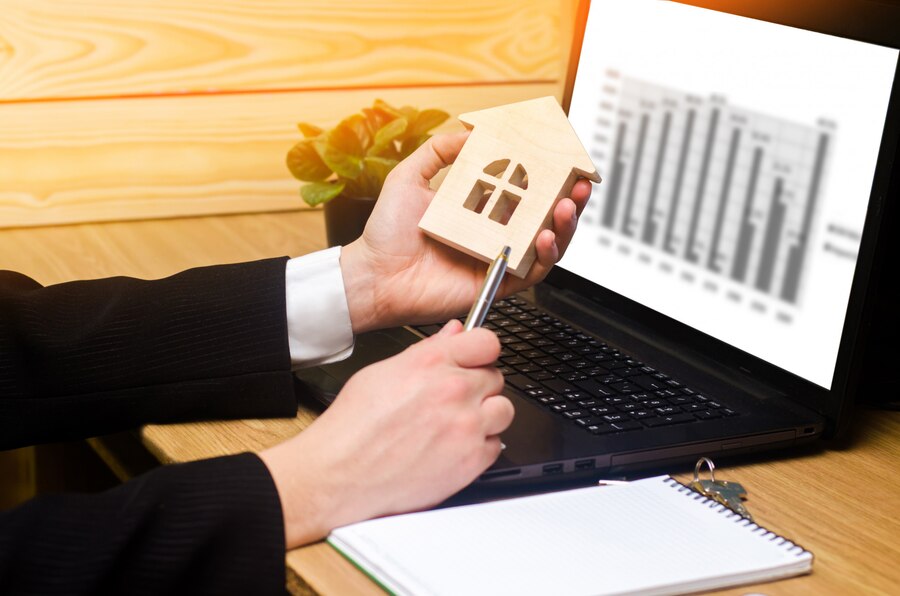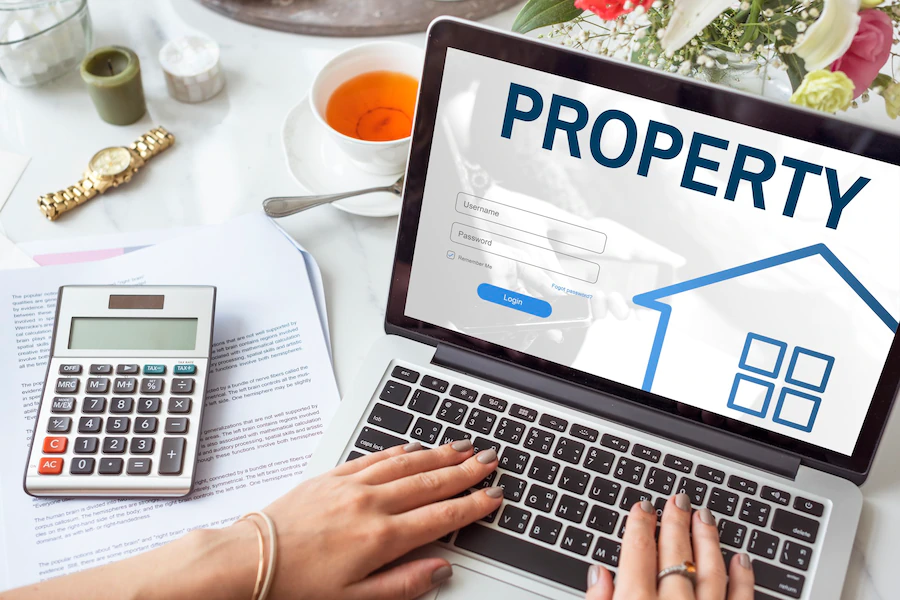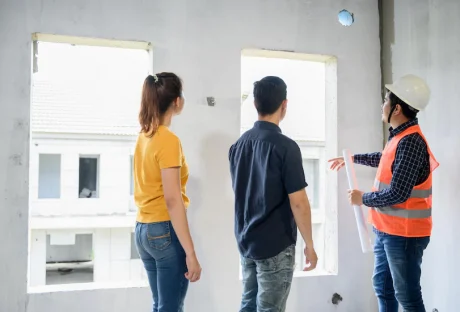Accurate property valuation is crucial in the real estate industry for informed decision-making and risk assessment. Property valuation software has emerged as a game-changer, offering efficiency and precision. By leveraging data insights, advanced algorithms, and customization options, property valuation software transforms the appraisal process. This article explores the benefits of software development services for real estate, their role in enhancing efficiency, customization for different property types, collaboration and transparency, and the importance of security and compliance. Discover how property valuation software revolutionizes real estate appraisals.
What Is Property Valuation Software
In the real estate industry, determining the value of a property is essential but manual appraisals can be time-consuming and prone to errors. Property valuation software has revolutionized the process using advanced algorithms and data insights to provide efficient and accurate valuations. This software is customizable for different properties and promotes stakeholder collaboration and transparency. Additionally, robust security measures ensure data integrity and compliance. By streamlining appraisals, property valuation software delivers precise results and empowers informed decisions in the real estate industry.
Benefits Of Accurate Property Valuation For The Real Estate Industry
Accurate property valuations are crucial for buyers and sellers to make informed decisions when buying or selling properties. It ensures transparent and fair transactions. Lenders can assess the risk associated with mortgage loans by determining the loan-to-value ratio through accurate valuations. Real estate professionals also benefit from accurate valuations as it provides them with valuable insights into market trends and property values. This enables them to analyze market conditions, identify investment opportunities, and develop effective pricing strategies. In summary, accurate property valuations are vital in the real estate industry and benefit all stakeholders involved in property transactions.
Informed Decision-Making
Having an accurate property valuation is crucial for both buyers and sellers when making decisions about a property. A precise understanding of a property’s market value helps buyers determine if it aligns with their budget and expectations. At the same time, sellers can set a reasonable asking price and ensure they receive fair compensation. This transparency in pricing creates a level playing field, fostering trust and reducing the likelihood of disputes. Additionally, accurate valuations facilitate smoother negotiations and increase the likelihood of successful transactions, benefiting both parties in the real estate market.
Risk Assessment For Lenders
In the mortgage loan process, accurate property valuations are crucial. Lenders rely on these valuations to determine the risk of financing a property. By figuring out the loan-to-value ratio, lenders can evaluate the likelihood of repayment and make informed decisions. A precise valuation gives lenders a clear understanding of the property’s market value, allowing them to align the loan amount with its worth. This helps lenders minimize potential losses and maintain the stability of their loan portfolio. Therefore, accurate property valuations are essential for lenders to make informed decisions in the real estate industry.
Market Analysis
Real estate professionals can gain valuable insights into the market using property valuation software. This tool enables them to analyze current market conditions, identify emerging trends, and assess property values more accurately. The software’s data-driven approach provides comprehensive information on comparable sales, market fluctuations, and property performance metrics. With these insights, real estate professionals can make informed decisions like identifying lucrative investment opportunities and developing effective pricing strategies. Property valuation software helps professionals stay ahead of market dynamics, optimize portfolios, and provide clients with accurate and strategic advice. Ultimately, using property valuation software enhances the expertise and effectiveness of real estate professionals in navigating the dynamic landscape of the real estate market.
If you need to develop your own property valuation software for real estate, you can contact Sloboda Studio. This team of top-notch professionals have been on the market for more than 13 years and know all the pitfalls and tricks to make the best software based on your needs.
Leveraging Data Insights And Enhancing Efficiency For Precise Property Valuation
Valuing properties can be made more accurate and efficient using property valuation software. This software uses advanced algorithms and data insights to streamline the valuation process. Below are some important features that help ensure precise property valuations.
Streamlined Processes And Intuitive User Interfaces
The property valuation software provides a straightforward approach and easy-to-use interfaces, making complex valuation procedures more manageable. The software guides appraisers through every step, ensuring accuracy and minimizing the likelihood of errors. Moreover, it automates repetitive tasks, improving efficiency while saving time.
Advanced Algorithms And Machine Learning Techniques
Modern property valuation software utilizes advanced algorithms and machine learning techniques to analyze vast data. To generate accurate valuations, these algorithms consider various factors, such as property size, location, comparable sales, market trends, and more. Machine learning algorithms continuously learn from new data, improving the accuracy of valuations over time.
Data-Driven Approach For Comprehensive Property Analysis
Property valuation software relies on a data-driven approach to provide comprehensive property analysis. It integrates various data sources, including public records, property listings, historical sales data, and market trends, to offer a holistic view of a property’s value. The software minimizes reliance on subjective opinions and ensures a more accurate assessment by considering multiple data points.
Standardized Evaluation Criteria For Reducing Human Error
Property valuation software uses standardized evaluation criteria to minimize human error. It establishes consistent parameters for evaluating property characteristics, market conditions, and other relevant factors. By removing subjective biases and standardizing the valuation process, the software enhances the accuracy and reliability of property valuations.
Customization For Different Property Types
There are different types of properties, including residential, commercial, and industrial, each with distinct features that require special valuation considerations. Fortunately, property valuation software can be customized to meet the unique needs of each type of property.
Specialized Modules For Residential, Commercial, And Industrial Properties
Valuation software usually contains specialized modules that cater to different types of properties. These modules utilize specific valuation approaches and factors applicable to residential, commercial, and industrial properties. The software guarantees precise and fitting valuations by customizing the valuation process according to each property type.
Adapting Valuation Software To Unique Property Characteristics
Appraisers can customize property valuation software to account for unique property characteristics such as unusual layouts, special features, or specific zoning designations. This flexibility ensures that the software can accurately value various properties.
Collaboration And Transparency In Property Valuation
Property valuation software encourages cooperation and clarity among all parties involved in the valuation process. This software provides access to valuation reports for real estate professionals, appraisers, lenders, and clients, allowing for open communication and minimizing misunderstandings. With collaboration features, multiple parties can review and offer feedback on valuations, resulting in a transparent and effective process.
Security And Compliance In Property Valuation Software
When dealing with sensitive property information, it’s important to prioritize data security and compliance. Property valuation software implements strict security measures and follows industry regulations to ensure this. These measures include encryption protocols, access controls, audit trails, and adherence to privacy laws. By doing so, the software maintains the trust of stakeholders and protects the accuracy of property valuations.
Wrapping It Up
Real estate professionals now have access to property valuation software that has transformed the industry. This software provides precise and efficient property valuations that are based on data. Accurate property valuations can lead to better decision-making and risk assessment for lenders. The software utilizes advanced algorithms and customization options to streamline processes and improve the accuracy of valuations. Collaboration features and robust security measures ensure transparency and protect sensitive property information. As property valuation software advances, the real estate industry can expect increased efficiency, accuracy, and transparency in property appraisals.
Additional:

























